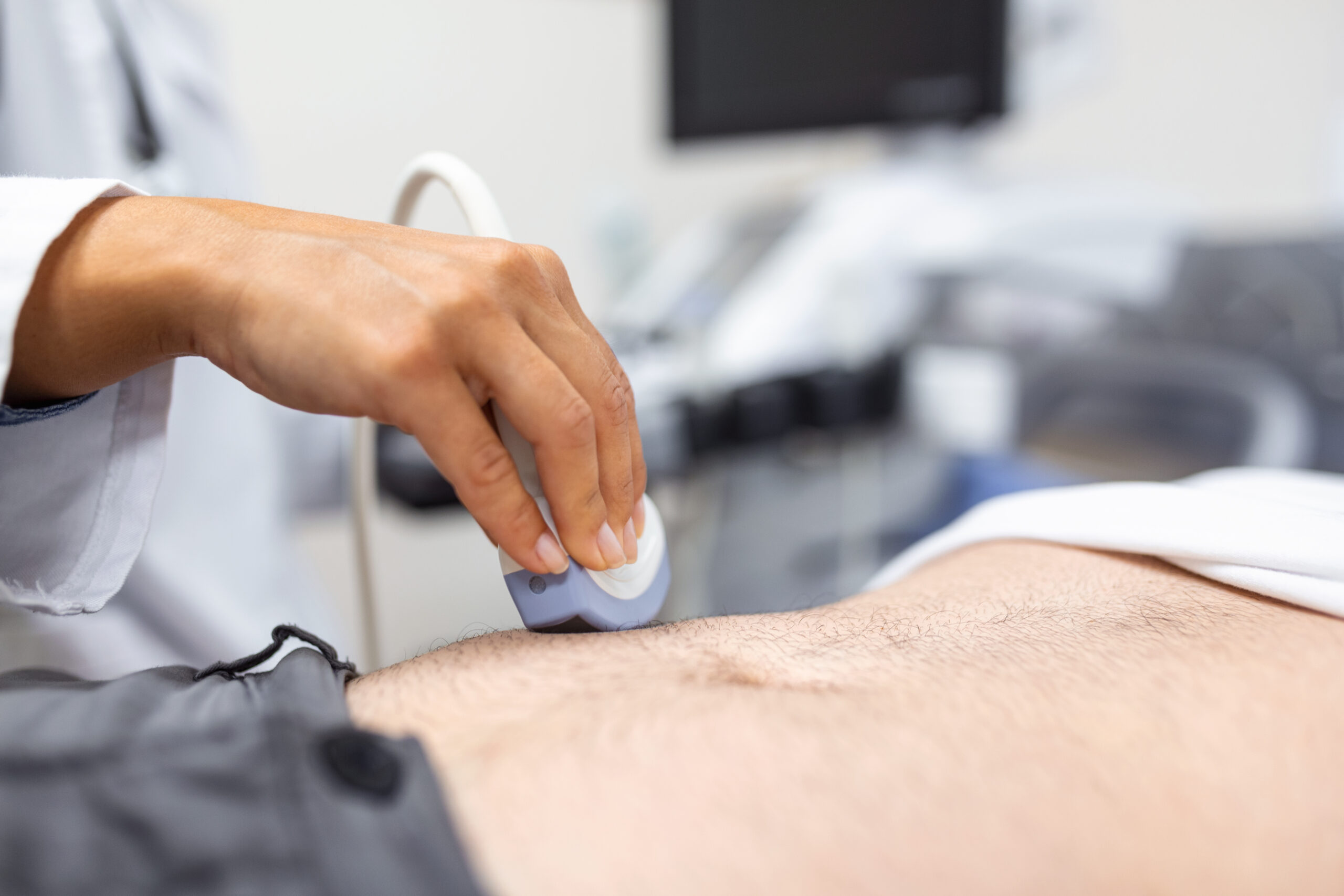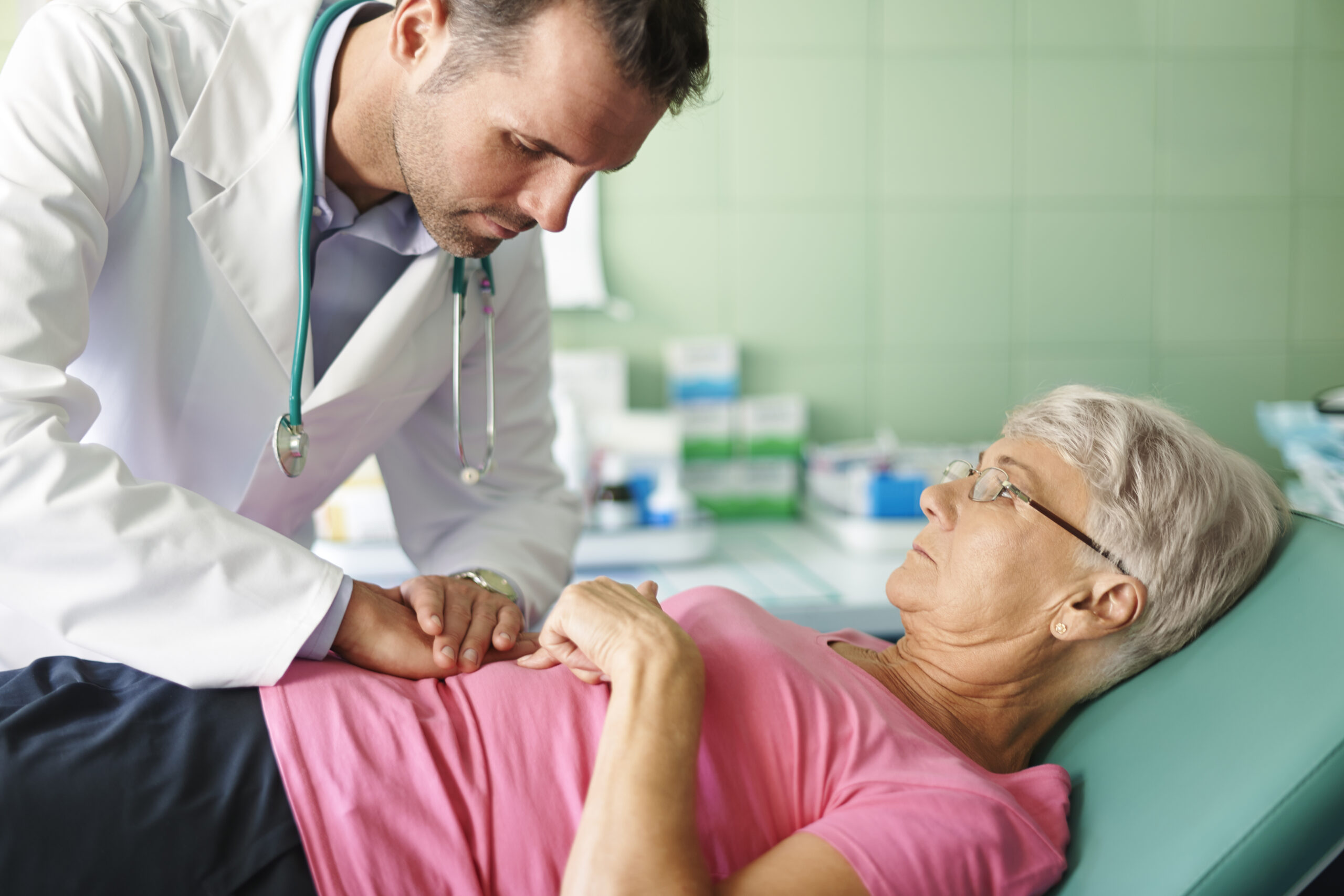A Gastroenterologist treats digestive system diseases.
Gastroenterology, commonly referred to as gastrology, studies the work and dysfunctions of the digestive system. Its diseases can be associated with many ailments that are difficult to treat, so you should not delay a visit to this specialist if you observe disturbing symptoms.
Since gastroenterology is a vast field of knowledge, a specialist in this specialization can treat many diseases. They primarily affect the stomach, esophagus, intestines, anus, digestive glands, and bile ducts.
The first stage of a visit to the gastroenterology office is a thorough conversation with the patient.
The doctor asks about:
Later in the visit, the gastroenterologist will conduct an examination![]() . They mainly focus on the abdominal cavity. Sometimes it is also necessary to perform a rectal examination, i.e., palpation of the inside of the anus.
. They mainly focus on the abdominal cavity. Sometimes it is also necessary to perform a rectal examination, i.e., palpation of the inside of the anus.
The doctor may decide to conduct additional tests for you. The conclusion is based on the collected data.
This specialist may perform or request the following tests![]() .
.
Firstly, there is gastroscopy![]() . It is an endoscopic examination. It focuses on the upper digestive tract. The doctor inserts the instrument into the esophagus. It can trigger a gag reflex. However, do not be afraid. During it, the throat is anesthetized. The procedure takes no more than several minutes. The advantage of gastroscopy is the ability to perform imaging diagnostics and intervention in the event of abnormalities.
. It is an endoscopic examination. It focuses on the upper digestive tract. The doctor inserts the instrument into the esophagus. It can trigger a gag reflex. However, do not be afraid. During it, the throat is anesthetized. The procedure takes no more than several minutes. The advantage of gastroscopy is the ability to perform imaging diagnostics and intervention in the event of abnormalities.
If necessary, a gastric mucosa fragment can be used for additional tests for Helicobacter pylori![]() . The bacterium contributes to the development of gastric ulcers, and its presence is confirmed or excluded on the spot. Gastroscopy can also dilate narrowings in the digestive system.
. The bacterium contributes to the development of gastric ulcers, and its presence is confirmed or excluded on the spot. Gastroscopy can also dilate narrowings in the digestive system.
Another test is a colonoscopy![]() . It is also an endoscopic examination. This one focuses on the lower part of the digestive tract. Before the procedure, the large intestine must be wholly cleansed of food debris.
. It is also an endoscopic examination. This one focuses on the lower part of the digestive tract. Before the procedure, the large intestine must be wholly cleansed of food debris.
The doctor inserts the endoscope tube. They lead into the large intestine. It happens through the rectum. This method allows for the detection and removal of alarming changes. The most common are intestinal polyps. The doctor also examines the entire large intestine. It allows us to check the mucosa condition accurately.
Abdominal ultrasound![]() assesses the liver, gallbladder, pancreas, spleen, kidneys, adrenal glands, bladder, and blood vessels. It detects abnormalities in size and structure.
assesses the liver, gallbladder, pancreas, spleen, kidneys, adrenal glands, bladder, and blood vessels. It detects abnormalities in size and structure.

A biochemical blood test![]() checks the plasma components. The results show the level of enzymes, hormones, proteins, electrolytes, or trace elements.
checks the plasma components. The results show the level of enzymes, hormones, proteins, electrolytes, or trace elements.
Stool examination![]() is recommended for pancreatic, parasitic, and bacterial diseases, gastric ulcers, colon cancer, and food absorption disorders. The patient gathers feces. It must be in a sterile container. Then, they take it to the clinic or hospital for analysis.
is recommended for pancreatic, parasitic, and bacterial diseases, gastric ulcers, colon cancer, and food absorption disorders. The patient gathers feces. It must be in a sterile container. Then, they take it to the clinic or hospital for analysis.
The gastroenterologist may extend the scope of the medical interview with a consultation with a dietitian or proctologist, depending on the emerging symptoms.
What happens after establishing the diagnosis? The doctor selects treatment. For some digestive problems, a change in diet may be enough. It is often necessary to use medications. It may be temporary or chronic.
These conditions![]() include:
include:
Below you will find out the characteristics of some of these diseases.
They are conditions of the digestive tract. It is when there are peptic sores.
What is an ulcer? It is a mucosa deficit. It can lead to inflammation and necrosis. They are usually in the duodenal and gastric bulbs.
Some of the most frequent causes of this condition include:
The development of gastric and duodenal ulcers![]() can be also affected by genetic factors.
can be also affected by genetic factors.
Several factors can increase the risk of developing a peptic ulcer condition, such as prolonged and excessive stress, consumption of too many hot spices, excessive coffee intake, smoking, and excessive alcohol consumption. Remember that these are not direct causes. They are factors conducive to disease development.
Gastric and duodenal ulcers may be asymptomatic. It means they occur without any specific symptoms. But when they grow patients complain of chronic pain. It usually occurs several minutes after eating. It is burning. Patients also notice an uneasy feeling in the belly in the early morning. There may be nausea, watery mucous vomiting, and belching. Some people also experience heartburn. Gastric and duodenal ulcers are characterized by a decrease in symptoms or their disappearance after eating a small meal. In addition, ulcers can cause a feeling of “fullness” or even distension.
Do not ignore the stomach and duodenal ulcers. They can lead to harmful complications. With chronic abdominal pain visit a doctor for diagnosis. In turn, those cases need compulsory medical intervention and prompt hospitalization:
Cholelithiasis![]() is a condition that is characterized by the presence of deposits (stones) in the gallbladder. Less often they are outside it.
is a condition that is characterized by the presence of deposits (stones) in the gallbladder. Less often they are outside it.
Gallstones are formed from cholesterol, proteins, and inorganic ions. They can block the bile flow. It leads to digestive problems, especially after heavy meals.
There are many causes and factors of gallstones:
Symptoms of gallstones vary depending on the type. Infected gallstones can cause dull pain and abdominal distension, while uninfected ones cause cramping pain that radiates to the middle epigastrium and right shoulder blade. Choledocholithiasis can cause chronic cholestasis, yellowing of the eyes and skin, inflammation, and cirrhosis of the liver. The most common symptom is biliary colic, sudden and intense cramping pain in the upper abdomen and right shoulder blade, often accompanied by fever, chills, and sweats.

Acute pancreatitis![]() is a condition affecting mechanisms that restrain or maintain the enzyme activity in the pancreatic follicular cells. It consequently induces the activation of enzymes in the pancreatic area. They push the pancreas and nearby organs to be self-digested.
is a condition affecting mechanisms that restrain or maintain the enzyme activity in the pancreatic follicular cells. It consequently induces the activation of enzymes in the pancreatic area. They push the pancreas and nearby organs to be self-digested.
Pancreatic destruction and internal bleeding can result from the digestion of blood vessels and the digestive tract by enzymes.
The pancreas is responsible for producing pancreatic juice and hormones. These affect carbohydrate metabolism. The pancreatic juice is then drained into the duodenum. There it assists in the fat and protein digestion from consumed food.
When unusual circumstances occur, the pancreas and nearby tissues can start to digest themselves because proenzymes within the organ become activated. This self-digestion can lead to inflammation in the area surrounding the pancreas. It can also result in general inflammation. It occurs if other organs are also impaired.
Usually, the condition is mild. But there are fatal cases. The demise happens very early. It may be even after a week after the start of the first signs – as numerous organ fail. There can also be sepsis. It also leads to an inflammatory reaction and then infection. They can cause organ failure or dysfunction.
Severe pancreatitis is linked with enzyme secretion issues. In most patients, the condition occurs as a complication of gallstone disease due to excessive alcohol consumption.
Other causes of acute pancreatitis may be:
The symptoms of acute pancreatitis include:
Observation of the above signs demands prompt medical attention. Until the doctor makes a proper diagnosis, the person should abstain from eating.
Irritable bowel syndrome![]() is a condition in the course of which the intestines are disturbed. It is causing various types of abnormalities in their functioning.
is a condition in the course of which the intestines are disturbed. It is causing various types of abnormalities in their functioning.
IBS is classified as a functional digestive system disease. It means that the accompanying symptoms are not linked to one exact cause. Despite numerous studies and quite detailed diagnostic criteria, a single effective procedure in the course of irritable bowel syndrome has not yet been developed.
The cause of IBS is still unknown. However, specialists are convinced that its occurrence is multifactorial.
The most significant abnormality in the disease is disorders of the brain-gut axis. It is worth emphasizing here that the digestive system, due to the number of neural connections and the sum of neurons involved in the regulation of its operation, is called the “second brain”. Therefore, disorders in the information transmission between individual neurons in the intestinal grid result in abnormal digestive tract motility.
One neurotransmitter, serotonin, is particularly significant in this regard. The hormone is located in the nervous connections of the digestive system. For this reason, drugs that increase or inhibit serotonin synthesis play a significant part in irritable bowel syndrome treatment.
A significant impact on the development of irritable bowel symptoms may also have disturbances in the intestinal flora, known as the intestinal microbiota.
The signs rely on the state of the condition. The patient may struggle with diarrhea or constipation. There is also abdominal pain.
Other IBS symptoms include:
Symptoms of IBS may overlap with other diseases. It includes gastroesophageal reflux or lactose intolerance.
Pay attention to:

Symptoms of gastrological problems in children![]() may be similar to those in adults. But often the first sign is not gaining weight. Other reported manifestations include abdominal pain, vomiting, diarrheal stools, and changes in the frequency of bowel movements.
may be similar to those in adults. But often the first sign is not gaining weight. Other reported manifestations include abdominal pain, vomiting, diarrheal stools, and changes in the frequency of bowel movements.
The doctor collects medical interviews. They talk with the patient (if possible) and their carers. In the case of small children, it is worth taking a pregnancy record card to the visit. It is mandatory to bring your child's health book.
The standard tests are blood, urine, and stool tests. The doctors may also recommend an ultrasound of the abdomen.
Common diseases treated by a pediatric gastroenterologist include:
The treatment focuses on treating the medical problem.